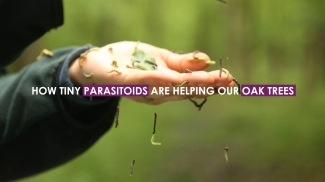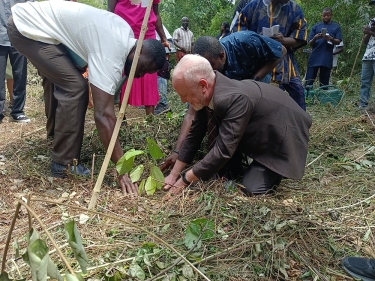“Oak Resilience”: investigating ecological measures to combat oak decline

Oaks can live up to a thousand years and grow to trees of impressive magnitude. They are of great importance, economically and ecologically. Oak wood is hard and resistant and provides a valuable resource for the market. And with over a thousand species of beetles, butterflies, birds and bats, fungi and more living on oaks, these trees are a real biodiversity hotspot.
Since the mid-1980s, however, the condition of oaks in Europe has deteriorated dramatically. This is due to an interaction of climatic extremes, such as drought or late frost, herbivorous insects and mildew. Among these stress factors, insect damage by early defoliators is of particular importance. Oaks generally show a strong ability for regeneration and can regrow their foliation even after complete defoliation. However, if severe defoliation in spring occurs repeatedly or in combination with a second stressor, the oaks’ energy reserves cannot be restored and the tree is lost.
The critical question is: how can we make oaks more resilient? And are there ecological means to combat oak decline? In Germany, committed people from forestry practice and science have joined forces to find solutions. The project “Oak Resilience” investigates the resilience of the native pedunculate oak and sessile oak and looks into predatory parasites –called parasitoids– of the most important early defoliators in oaks, the winter moth Operophtera brumata, the mottled umber moth Erannis defoliaria and the oak leafroller moth Tortrix viridana. Parasitoid insects are natural antagonists of defoliating insects and are an important regulatory force in the ecosystem. The project will develop recommendations for silvicultural measures to support these natural regulating forces in order to strengthen the oak’s vitality and forest resilience in general. The project is led by Wald und Holz NRW and funded by the FNR (Agency for Renewable Resources; FKZ 22017517). Watch this video to get an introduction to the project – and check our Resilience blog for upcoming project results in 2023.


